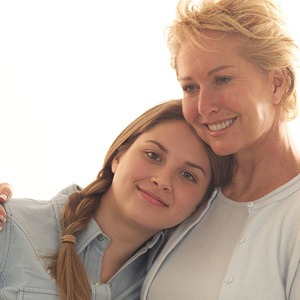Teenagers. They think they know everything. You give them an inch, they swim all over you.
-The Little Mermaid
Being a parent can be hard. There is no manual, and no criteria to meet before you become a mother or a father. Often times we are left with using the same techniques we were raised by, even when we thought we never would. As my children grow older, I am quickly realizing we will soon have a teenager in our home. I can remember being a teenager. It is such a struggle trying to adapt to life...wanting to be independent but also you're not quite ready to do everything on your own. Years of trying to fit in, and thinking I knew more about things than I really did. Yes, being a teenager is tough, but now I worry about being the parent to a teenager. There is a lot to think about...rules...discipline...dating...trying to be their friend while still being the parent...and so on. I know that each child is different, so what can I do to ensure I am being a good parent?
First off we need to know, what are the purposes of parenting?
2 Nephi 2:23
"And they would have had no achildren; wherefore they would have remained in a state of innocence, having no bjoy, for they knew no misery; doing no good, for they knew no csin."
Children can bring us the greatest joys, and also the greatest sorrows.
- provide, preside, protect; nurture (found in The Proclamation to the Family)
- teach children social norms, traditions
- Develop emotional skills (such as empathy)
- Develop capacity to love
- To provide a safe environment to learn and grow
- To help children to handle challenges they might encounter
- To help us (the parents) know God
- To help us prepare for eternal life
- To be examples
I am sure these are just a few of the many purposes of parenting, but we must realize that there IS a purpose. Our children need us, and we need them.
Okay back to raising teenagers, when a problem arises, we must first identify:
WHO owns the problem?
That is, who is affected by the problem or who would like things to change?
Child or the Parent?
When we know whose problem it is, we can be better at handling and finding the solution.
As parents, we need to:
- always have respect for the child
- Be aware of their needs, such as a need for contact or belonging. If we don't meet their needs, they may go to other places to fulfill those needs
- need to demonstrate confidence in their child
- Give them support and encouragement
- Let them experience the natural consequences of their actions. Some of the best lessons come from experiencing these kinds of consequences. (Exceptions being if the natural consequence is too dangerous, too far in the future, or if someone else will be affected)
- teach them to contribute! A family is a TEAM-think of being on a sports team, or being a member of an orchestra...if you don't do your part, you will not be able to be a part of the team.
Finally, here are some videos that have really opened up my eyes. They are all about dealing with teenagers, but I feel like it is useful information to all parents and grandparents to children of all ages. Like I said, kids don't come with a manual, but it's nice to have some resources that can help you along your journey.


No comments:
Post a Comment